Description
ABSTRACT
A Review of the Electricity Act, 2023 – Impact and Major Issues Arising
Emeka Ezekwesiri*, Favour Ogini** and Iyanuoluwa Adeyemo***
A core objective of the Electricity Act 2023 (the “Act“) is to provide a holistic, integrated policy plan that recognizes and promotes all sources for generating, transmitting, and distributing electricity, including integrating renewable energy into Nigeria’s energy mix. The Act repealed the Electric Power Sector Reform Act (“EPSRA“), the erstwhile principal Nigerian electric power sector legislation since 2005. The Act also recognizes federating states’ electric sector law-making powers and identifies the borderline distinction between electricity supply and distribution. This article analyses the Act and examines in detail the significant changes introduced by the Act to the electric power sector, viz-a-viz the EPSRA, focusing on its significance and impact on the Nigerian electricity supply industry. This article also identifies and addresses issues arising from the provisions of the Act and proffers solutions to some of the challenges that may arise.
Keywords: Electric power, legislative powers, renewable energy.
INTRODUCTION
On 9 June 2023, President Bola Ahmed Tinubu signed the Electricity Act 2023 (the “New Act” or the “Act“) into law. This is a significant milestone in the Nigerian electric power sector since passing the Electric Power Sector Reform Act of 2005 (the ‘EPSRA’ or the “Repealed Act’).
The Act repealed the following laws – (a) EPSRA (b) Hydro Electric Power Producing Areas Development Commission (Establishment, etc) Act, 2010 (the “Hydro Electric Act“); (c) HydroElectric Act (Amendment) Act, 2013; (d) Hydro Electric Act (Amendment) Act, 2018; and (e) the Nigerian Electricity Management Services Agency (Establishment, etc) Act, 2015. The Act has consolidated the provisions of the foregoing repealed laws with certain modifications and enhancements.
This article highlights the objectives of the Act. It examines in detail the significant changes introduced by the Act to the electric power sector viz-a-viz the EPSRA and issues arising from that place. The article also provides a legal analysis of the impact the Act will likely have on the Nigerian Electricity Supply Industry (“NESI”) and proffers solutions to some of the challenges that may arise.
* Senior Associate, G. Elias.
** Associate, G. Elias.
*** Associate, G. Elias.

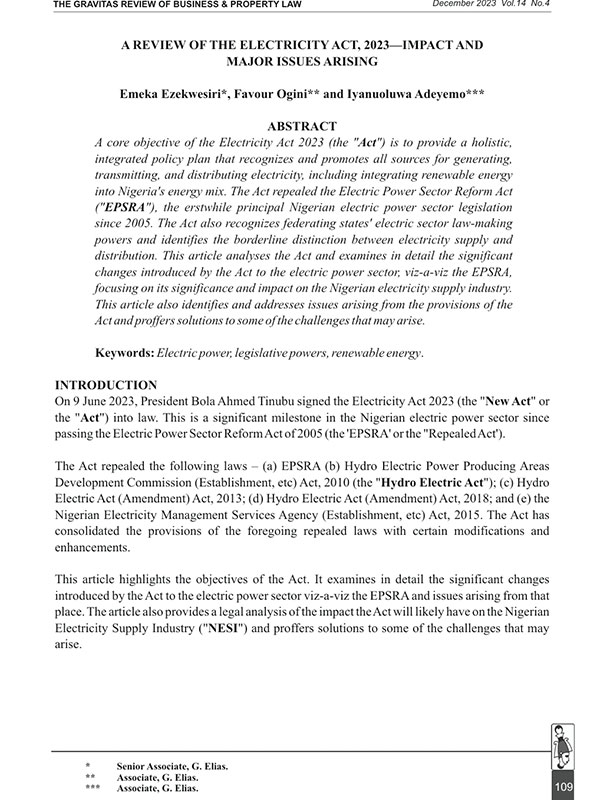
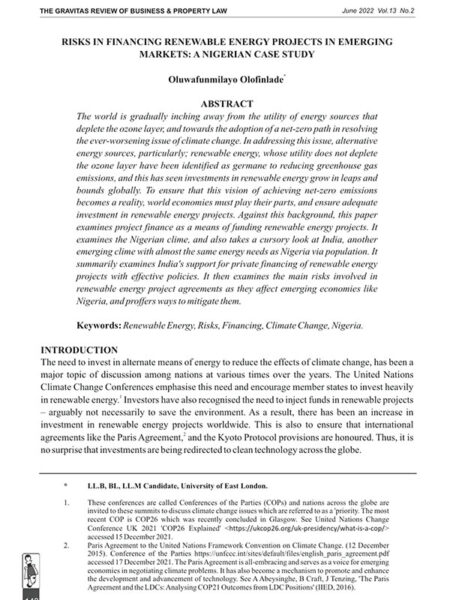
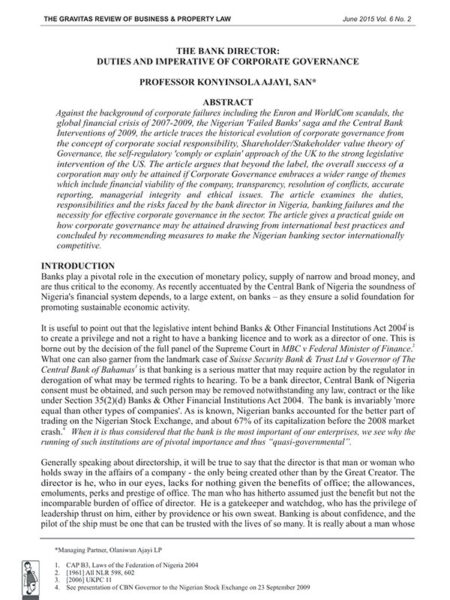
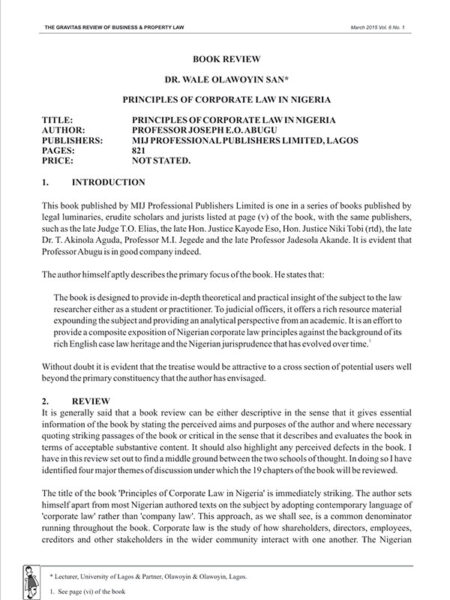
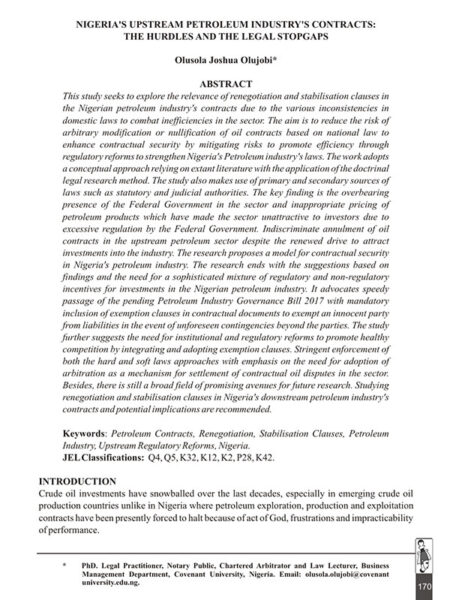


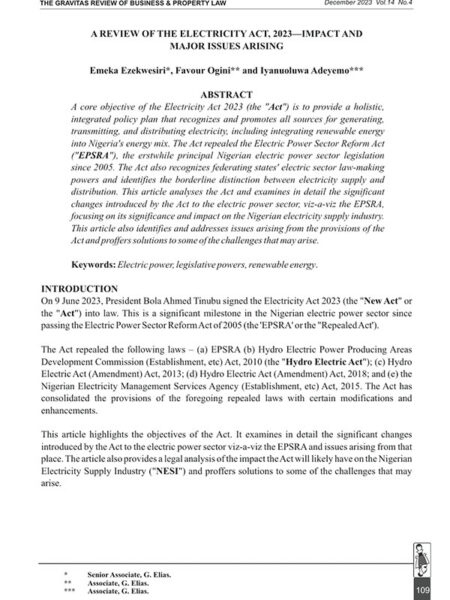
Reviews
There are no reviews yet.